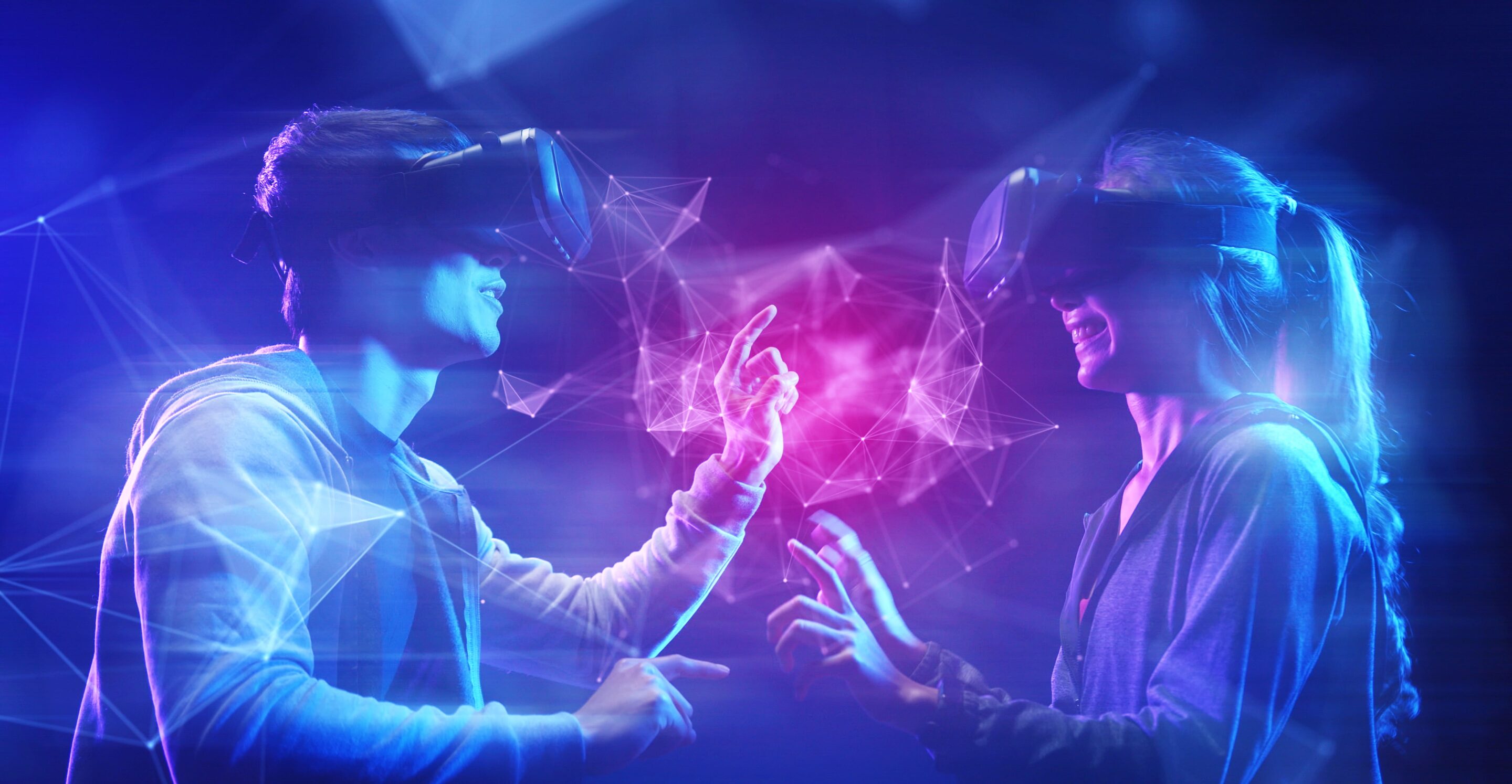
AI’s Leap into the Metaverse: Unveiling the Future of Virtual ExperiencesAI’s Leap into the Metaverse: Unveiling the Future of Virtual Experiences The Metaverse, a burgeoning virtual realm where digital and physical worlds converge, is currently experiencing a surge in advancements led by the integration of Artificial Intelligence (AI). This technological convergence is unlocking unprecedented possibilities for immersive and engaging virtual experiences. Personalized Avatars and Interactions: AI-powered avatars can now adapt to users’ preferences, emotions, and social cues, creating highly personalized interactions within the Metaverse. They can recognize speech, translate languages in real-time, and generate realistic body language, fostering a more natural and human-like experience. Immersive Environments: AI is transforming virtual environments into dynamic and responsive spaces. Algorithms can generate realistic textures, lighting, and soundscapes that adapt to users’ actions and sensory inputs. This creates an immersive experience that blurs the lines between the digital and physical realms. Content Creation and Curation: AI-driven content creation tools enable the seamless generation of virtual assets, including objects, environments, and characters. This automates the process of populating the Metaverse with high-quality content, freeing up creators to focus on innovative concepts. Additionally, AI can curate content based on users’ preferences, ensuring a tailored virtual experience. Virtual Socialization: AI-powered chatbots and virtual assistants facilitate virtual socialization by providing social cues, initiating conversations, and resolving conflicts. They can also facilitate language translation and cultural bridging, enabling users to connect seamlessly across geographical and linguistic barriers. Gamification and Immersive Learning: AI enhances gamification by adapting challenges to users’ skill levels, providing real-time feedback, and creating engaging virtual worlds. In immersive learning environments, AI-powered instructional agents can tailor educational experiences to individual needs, offering personalized guidance and assessments. Ethical Considerations: As the Metaverse expands, ethical considerations regarding data privacy, bias, and discrimination become paramount. AI algorithms must be designed and implemented responsibly to ensure inclusivity and prevent harm. Developers must also address issues of user consent and control over their own data. The Future of AI in the Metaverse: The future of AI in the Metaverse holds boundless possibilities. As technology advances, we can expect further breakthroughs in: * Artificial Superintelligence (ASI): ASI-based entities could create and manage virtual societies, optimize user experiences, and mediate conflicts. * Quantum Computing: Quantum algorithms could dramatically accelerate content creation, enable real-time simulations, and enhance the resolution and responsiveness of virtual environments. * Brain-Computer Interfaces (BCIs): BCIs could enable users to control their virtual avatars and interact with the Metaverse directly through thought. Conclusion: AI’s leap into the Metaverse is transforming the way we experience virtual reality. By empowering avatars, creating immersive environments, and facilitating social interactions, AI is paving the way for a future where the boundaries between the digital and physical worlds blur, opening up a realm of unprecedented possibilities for innovation, entertainment, and human connection.
Posted inNews